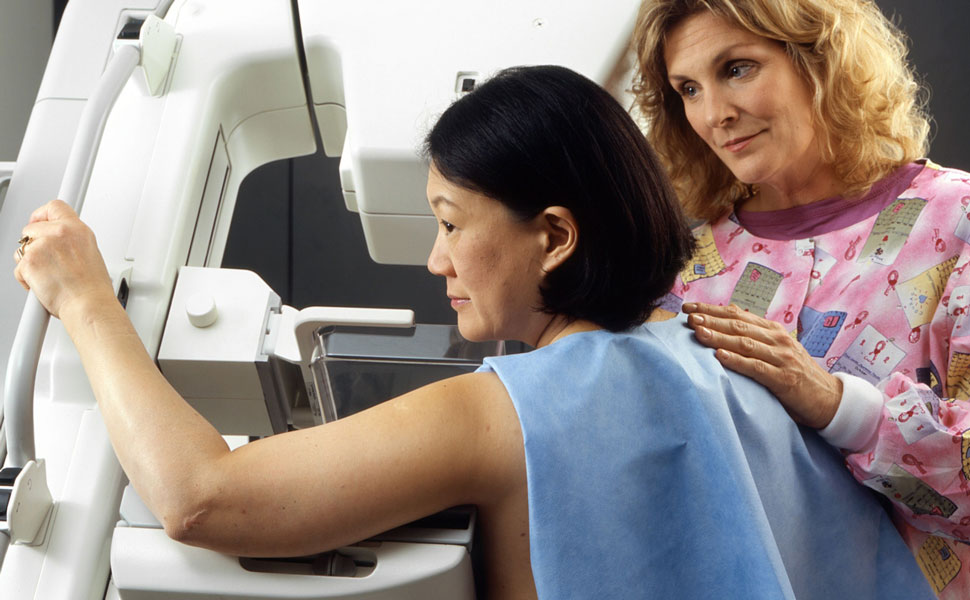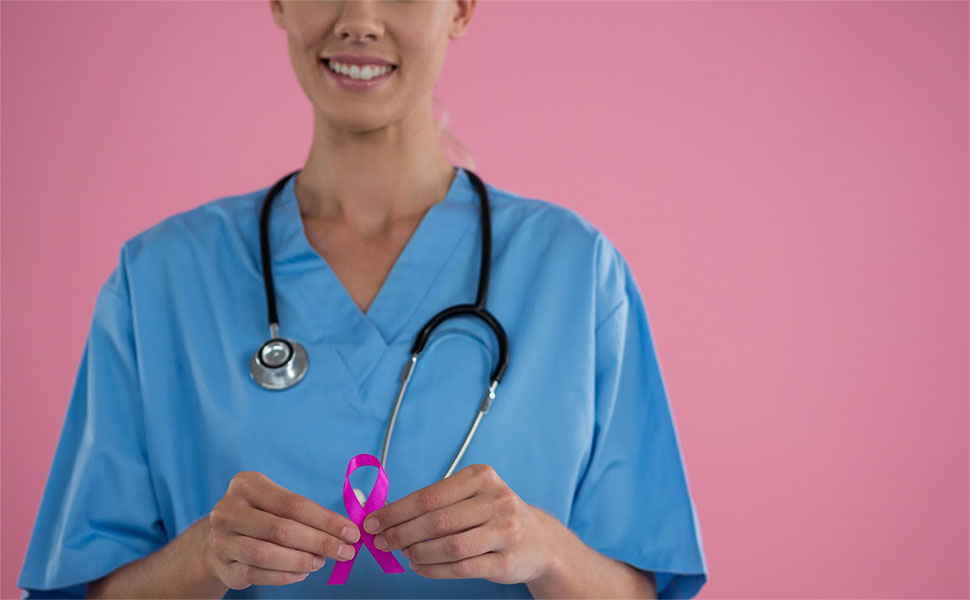Held every year in the month of October, Australia’s Breast Cancer Awareness Month is a health advocacy campaign to help increase and support the awareness for breast cancer and how early detection can provide the best chance of survival.
Breast cancer remains the most commonly diagnosed cancer type for Australian women. In fact, it is estimated that over 19,000 new cases of breast cancer will be diagnosed in 2020 alone which is almost 52 breast cancer diagnoses every single day.
The actual cause of breast cancer is still a subject of research, which is why creating awareness surrounding breast cancer and educating our community is incredibly important.
When breast cancer is detected early, it can be easily cured with adequate diagnosis and treatment. Therefore, early detection remains the cornerstone to prevent and control breast cancer.
Read ahead to learn more about breast cancer prevention and how breast cancer screenings can help save life.
About Breast Cancer
Breast cancer is the abnormal growth of cells in the breast’s lobules or ducts. Often occurring in women and rarely in men, breast cancer has many kinds depending on which cells in the breast turn cancerous.
The growth of a lump in the breast, fluidic discharge as well as physical changes in the shape and texture of the breast remains the most commonly seen symptoms of breast cancer.
However, it is also possible that some people will not show any signs of symptoms of this form of cancer which makes breast screenings very crucial especially for people who have some or high risks of breast cancer.
You should be also remindful that symptoms can happen with other conditions that are not cancerous, so be sure to see your GP if you’re concerned about your breast health.
Breast cancer is also a major public health problem in Australia. According to a report “The Financial Impact of Breast Cancer” published by Breast Cancer Network Australia, on average a woman will pay around $5,000 in out-of-pocket costs for their treatment, making breast cancer one the most expensive health issue in Australia.
How to check for breast cancer signs and symptoms?
Being able to recognise the changes in breast health is vital for breast cancer prevention. A woman should know how her breast looks and feels normally and report to doctors immediately if they recognise any changes.
And while it is important to look for signs and symptoms, a woman should also undergo regular breast cancer screenings including mammograms and ultrasound that can effectively detect breast cancer even before the symptoms appear.
Breast Cancer Symptoms
- Lump in the breast or underarm
- Thickening or swelling of all or part of a breast
- Changes in the shape or size of the breast
- Localised or persistent pain in any area of the breast
- Nipple discharge including the discharge of blood
- Skin dimpling with irritation in the breast
- Rash or redness if the breast and nipple skin
Early breast screenings can save your life
Anyone can be living with breast cancer for years before your doctor can recognise one by which time, it can be fatal.
That is why breast screening techniques including mammograms are used to detect breast cancer while it is still small and has not spread to other tissues or organs.
Cancer detection through mammograms aims to find cancer at an early stage when treatment is likely to be effective. Including early detection, you also have the benefit of exploring alternative treatment options, increased survival chances and improved quality of life.
A breast screening procedure doesn’t prevent you from being diagnosed with breast cancer, but it will provide you with a better chance to survive.
Breast Screenings in Epping, VIC

A mammogram is primarily an X-ray of the breast that takes less than 15 minutes to perform.
Mammogram screenings are conducted when the signs are too small to detect with a physical examination. There are various screenings techniques, but it will be ideal to seek a GP’s advice on which screening procedure would best suit you.
Any women aged between 50 and 74 are entitled to free mammograms every two years across Melbourne and Victoria under the aegis of BreastScreen Australia, the national breast cancer screening program.
However, mammograms are not very effective for detecting cancer when you are under 40 years of age. If you are concerned about your breast health and under the age of 40, your GP is the best person to consult and seek advice.
GPs like Epping Family Medical & Specialist Centre can provide personalised advice about the type of screenings and how often screening is appropriate for you.
Know your Breast Cancer Risks
There are many risk factors associated with breast cancer. The major risk factors like ageing and being a woman are something that can’t be controlled.
Other uncontrollable risk factors include family medical history. A woman with a family history of breast cancer or ovarian cancer is already at a higher risk of being diagnosed with one. They should make the effort of seeking advice from GP’s and know what management plan can be beneficial for them.
Breast Cancer risk factors that cannot be controlled
- Age – Other than being female, age is a major risk factor that cannot be controlled. Age being a significant factor, the risk of breast cancer increases as you grow old. In fact, 75% of all breast cancer cases in Australia are seen in women aged 50 and above.
- Family History – If a woman has a first-degree family member with breast or ovarian cancer diagnosed, they are already at a higher risk than the rest of the women. You can be at equal risk if any family member in both of your maternal and paternal side had a history of breast cancer.
- Breast Density – Women with higher breast density are also at a higher risk of breast cancer.
- The previous history of breast cancer – Having a previous case of breast cancer is associated with an increased risk of another primary cancer which is different from initial cancer.
Risk factors that can be controlled
There are many other modifiable risks where a woman can take charge and make certain lifestyles choices to reduce them.
They include:
- Drinking excessive alcohol can be linked to increased risk of breast cancer.
- Being overweight or obese. This can be linked to overweight women tends to have a higher level of insulin which are linked to higher risks of cancer including breast cancer.
- Not being physically active. Although the exact reason of how being physically active can reduce the risks of breast cancer is still not clear, but it may be linked to the changes it brings to your body weight, reduced fats and blood glucose levels and good energy balance.
- Eating unhealthy and not being able to maintain a balanced diet.
Seek GP’s help for breast cancer prevention







